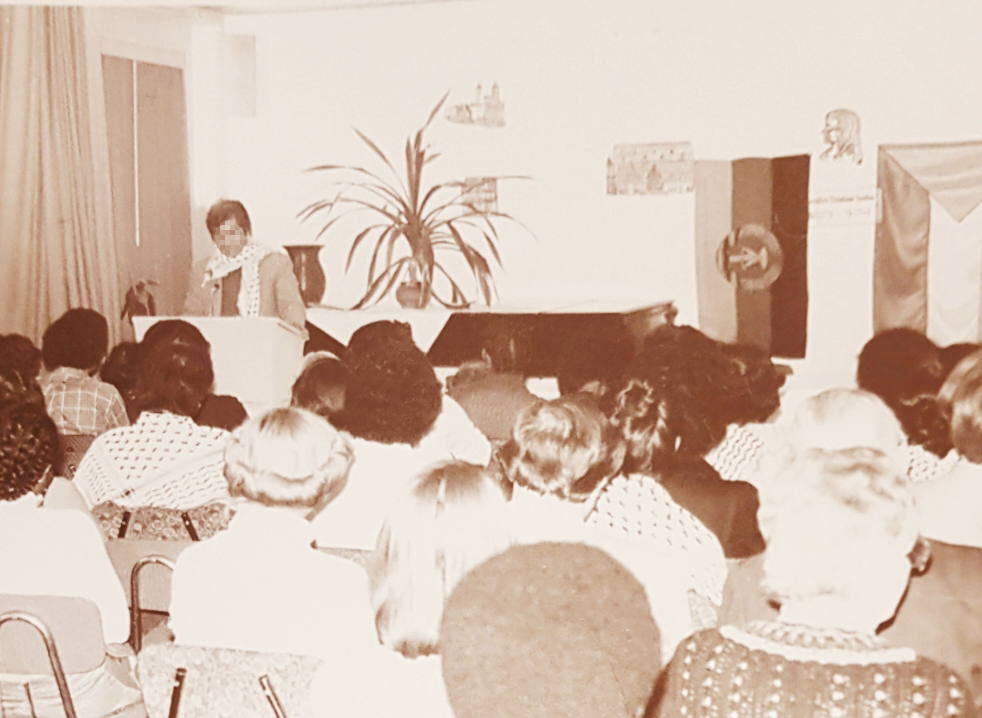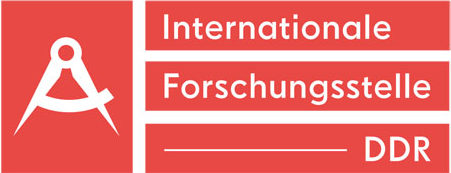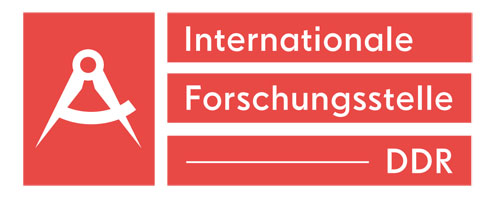A Palestinian doctor about his further education in the DDR
A young Palestinian doctor came to the German Democratic Republic (GDR) in 1980 to specialise in urology at the hospital in Berlin-Buch. For 6 months he first attended an initial German course at the “Dorothea Christiane Erxleben” Medical School in Quedlinburg. He answered our questions in writing, and upon request, we have published them anonymously.

Can you tell us about your family and upbringing? Where did you receive your medical training?
I was born in Haifa, Palestine in 1945. In 1948, our family was expelled from our homeland to Lebanon as one of over 700,000 Palestinian refugees. I was about three years old when I received the “refugee” stamp in my documents. I grew up in extremely difficult conditions in Lebanon. I was the youngest among 4 brothers, the oldest was 12 years old. We got assistance and relief help from the United Nations Relief and Works Agency for Palestine Refugees (UNRWA); a UN agency set up to assist the Palestinian refugees. I received my education through UNRWA schools. My parents were farmers in their own farm. My father was a district administrator (Mukhtar)1Mukhtar (مختار): A village chief. The term originates from the Ottoman Empire. under the British mandate in Palestine.
I grew up in Beirut where the political situation was characterized by political turbulence and discrimination against Palestinian refugees. We lived in inhumane and tough conditions in the refugee camps until the Palestine Liberation organization (PLO) was established in 1965.
Before I came to the GDR in September 1980, I had studied to become a medical doctor in Moscow, graduating in 1974. After returning home, I worked with the Palestine Red Crescent Society (PRCS); an alternative to the Red Cross society that also functioned as a health department of the PLO. I held a leading position as member of the PRCS’s executive council and as the Secretary of the General Union of Palestinian Physicians and Pharmacists (Lebanon branch).
How did you then come to study in the GDR?
The political department of the PLO, which maintained close relations with the GDR, organized a scholarship for me to train as a specialist in the field of urology in East Germany. I first attended a German language course at the medical school in Quedlinburg. I had heard little about the GDR during my studies in Moscow, but in the end, my experience didn’t differ much from what I had expected. What I noticed was that the practice of socialism in the GDR was more advanced than in the Soviet Union.
What do you recall about your time in Quedlinburg? What was the relationship like with the staff and other students?
There was a warm welcome from the school administration, which made the transition period smooth and short. We got the necessary orientation about the habits and social life in Quedlinburg. Groups and classes were based on their field of specialty, there was no common organization.
I spent about 6 months in Quedlinburg, and was mostly involved in either the language course or social activities. It was a fascinating method of teaching German with a very experienced staff. We also learned about social life in the GDR. My group consisted of physicians from Palestine and Lebanon. But the school had also other classes for nursing students and midwifery: From the People’s Democratic Republic of Yemen (South) and Nicaragua and there was a fruitful interaction among the different groups. We celebrated our various national days and got acquainted with each other’s traditions and political views, with the political and social problems. We exchanged our experiences in the struggle for freedom and a better life.
There were no German citizens at the school except its faculty and staff, but we had contacts with the local community and had developed good relations with many residents. We didn’t experience any kind of discrimination.
What happened after your time at the Medifa?
After the six months in Quedlinburg, I transferred to the Berlin-Buch clinic where I then began my training as a urologist. The other colleagues from my group were spread across different cities, but we kept in contact and held meetings through, for example, the General Union of Palestinian Physicians (GDR branch). We continued to hold such meetings even after leaving the GDR after our five-and-a-half-year training programmes. All of these students returned to their home countries following the programmes.
I left the GDR in March 1986 after finishing my studies and completing a medical degree at the Humboldt-University of Berlin.
Yet I could not go back to Lebanon, because the PLO had been expelled after the Israeli invasion in 1982. On the advice of the PLO leadership, I moved to the United Arab Emirates where my family was waiting. But there I also had many difficulties. Following this period, I moved to Norway, and have been living there ever since.
In hindsight, how do you view your training in the GDR? What was the significance of such programmes for national liberation movements like the PLO?
In my view and from what I have heard from my colleagues, my training in the GDR was of a very high standard. But there were two sides to my time in the German Democratic Republic: firstly, the training itself was important, but where I studied and specialized also had a large political impact.
Both the Soviet Union and the GDR meant a lot for me. Without their help, I and thousands of others from countries all over the world would not have had access to academic education. And this changed the outlook of the health services in the third world.
I still feel very grateful for both the Soviet Union and the GDR, for the opportunity they gave me to fulfill my dream. In this time, where the gap is widening between the wealthy countries in the North and the poorer countries in the South, there is an urgent need for more solidarity work, which I hope will deliver promising results.
The interview has been edited slightly for better readability.

